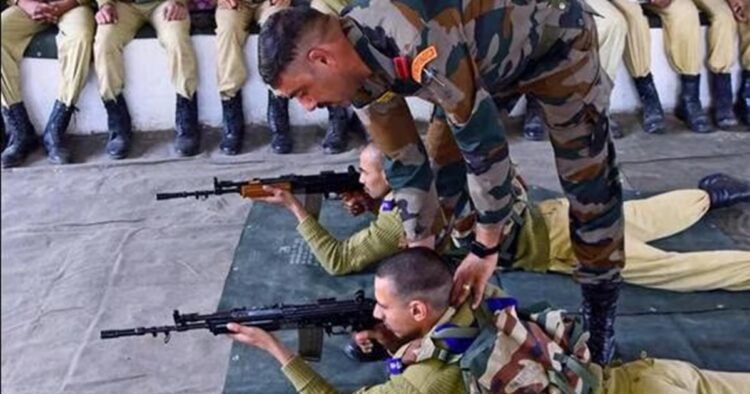The Indian armed forces are planning to suggest changes to the Agnipath recruitment scheme to the government. The first change is to raise the age limit for applicants from 21 to 23. The second change is to increase the retention rate of soldiers from 25% to 50% after four years of service.
Military officials believe these changes are necessary to improve “combat effectiveness.” They want to recruit graduates who can be trained for technical jobs in the Army, Navy, and Air Force. Officials are concerned that the current low retention rate could lead to a shortage of skilled personnel in critical areas.
The Agnipath scheme was introduced two years ago. It allows young men and women aged between 17.5 and 21 to join the armed forces for four years. After four years, 25% of these recruits, called Agniveers, are retained for regular service for another 15 years. The rest do not receive pensions or long-term benefits.
Under the old recruitment system, soldiers served for about 20 years and retired with pensions and other benefits. The age limit for technical positions was up to 23 years, although, for general duties, it was 21. The old system ensured a steady supply of experienced personnel, which the current scheme lacks.
The Agnipath scheme has faced criticism and protests, especially in northern states. Critics argue that the scheme prioritizes reducing pension costs over maintaining combat readiness. Former Navy chief Admiral KB Singh recently criticized the scheme, stating that it would weaken the military’s combat effectiveness.
The scheme has also become a political issue, opposition leader Rahul Gandhi criticized the government, claiming that Agniveers are treated unfairly and not granted “martyr” status if killed in action. The army responded, stating that compensation is being provided to the families of fallen Agniveers.
Prime Minister Narendra Modi defended the scheme, saying it is a necessary reform to keep the armed forces young and fit. He argued that the country’s security requires such measures and that the military has suffered due to delays in implementing reforms.
The proposed changes to the Agnipath scheme aim to address concerns about manpower shortages and improve the effectiveness of the armed forces. The government will need to approve these changes for them to take effect. The ongoing debate highlights the challenges of balancing cost-saving measures with maintaining a capable and ready military.

















Comments